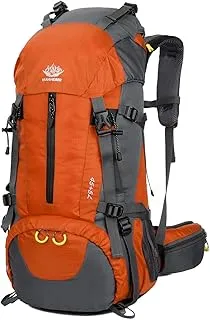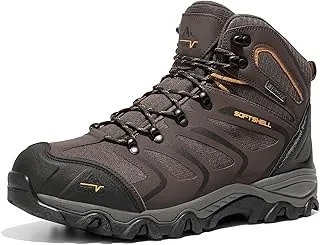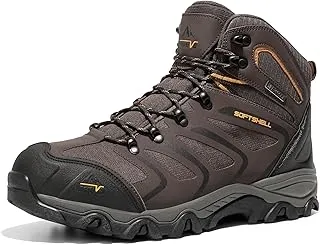When planning your next outdoor adventure, the choice between a day hike vs overnight hike can significantly impact your experience. As someone who has spent countless hours exploring trails across different terrains and seasons, I've learned that each approach offers unique rewards and challenges. This comprehensive guide from Nature Guests will help you understand the fundamental differences, preparation requirements, and decision factors to choose the perfect hiking adventure for your skill level and goals.
Understanding the Fundamental Differences

The fundamental distinction between a day hike vs overnight hike extends far beyond the obvious time commitment. During my years of guiding newcomers through their first hiking experiences, I've observed that understanding these core differences is crucial for making informed decisions about your outdoor adventures.
Day hiking typically involves completing a trail within 6-12 hours, returning to your starting point or a designated pickup location by evening. The beauty of day hiking lies in its accessibility – you can explore beginner-friendly trails without extensive gear investment or complex planning. I've personally completed over 200 day hikes across various difficulty levels, from gentle nature walks to challenging peak ascents, and each offers immediate gratification with minimal logistical complexity.
Overnight hiking, conversely, transforms your adventure into a multi-day journey requiring self-sufficiency in wilderness settings. The experience demands carrying shelter, cooking equipment, multiple days of food, and emergency supplies. What sets overnight hiking apart is the profound connection with nature that develops when you witness sunrise and sunset from the same remote location, experiencing the wilderness's complete daily cycle.
The psychological impact differs significantly between these approaches. Day hiking provides immediate achievement and allows for gradual skill building, making it perfect for testing your limits before committing to longer adventures. Overnight hiking, however, challenges your mental resilience, problem-solving abilities, and adaptability to changing conditions – skills that prove invaluable both on and off the trail.
🎒 Get the Perfect 50L Hiking Backpack - Amazon's Choice!Planning and Preparation Essentials
The planning phase reveals another crucial aspect of the day hike vs overnight hike decision. For day hiking, I typically spend 30-60 minutes planning, focusing on trail selection, weather conditions, and basic gear preparation. My planning checklist includes checking trail conditions, downloading offline maps, preparing adequate water and snacks, and informing someone of my intended route and return time.
Overnight hiking demands significantly more comprehensive planning. I typically dedicate 2-4 hours to planning even a simple overnight trip, considering factors like campsite availability, water source locations, permit requirements, food planning, and detailed gear selection. Understanding proper hike planning techniques becomes essential when your safety depends on thorough preparation.
Weather planning illustrates this complexity perfectly. For day hikes, I check the forecast and dress accordingly, knowing I can retreat if conditions deteriorate. Overnight hiking requires monitoring multi-day weather patterns, understanding how temperature fluctuations affect sleep comfort, and preparing for potential storm systems that could trap you in exposed locations.
Navigation preparation also differs substantially. Day hiking often allows reliance on well-marked trails and basic smartphone apps, though I always recommend carrying backup navigation tools. Overnight hiking necessitates advanced map reading skills, compass proficiency, and understanding terrain features for safe camping spot selection. During my wilderness guide training, we spent entire weekends practicing navigation scenarios that overnight hikers commonly encounter.
Planning Time Comparison
- Day Hiking: 30-60 minutes planning time
- Overnight Hiking: 2-4 hours planning time
- Permit Requirements: Rare for day hikes, common for overnight camping
- Weather Monitoring: Same-day vs. multi-day forecasting needs
Essential Gear and Equipment

The gear requirements represent perhaps the most tangible difference in the day hike vs overnight hike comparison. My day hiking kit weighs approximately 8-12 pounds and fits comfortably in a 20-30 liter daypack. Essential items include water bottles, energy snacks, first aid supplies, navigation tools, weather protection, and emergency communication devices.
Overnight hiking gear dramatically increases both weight and complexity. My typical overnight setup weighs 25-35 pounds, requiring a 40-60 liter backpack. The gear expansion includes shelter systems, sleeping equipment, cooking apparatus, multiple days of food, water purification systems, and enhanced emergency supplies. Understanding appropriate hike duration planning helps determine the exact gear requirements for your adventure length.
Shelter considerations highlight this complexity. Day hikers might carry a lightweight emergency shelter or rain poncho, weighing under one pound. Overnight hikers must select between tent systems, tarp configurations, or bivy setups, with quality options weighing 2-4 pounds. After testing dozens of shelter systems in various conditions, I've learned that the right choice depends on expected weather, terrain, and personal comfort preferences.
Sleep systems present another major gear category exclusive to overnight hiking. Quality sleeping bags, insulation pads, and pillows are crucial for restorative rest that enables multi-day performance. Temperature ratings, packability, and comfort become critical factors – mistakes in this category can transform an enjoyable adventure into a miserable ordeal.
Expert Guide: Choosing the Right Day Pack
Professional guide explains how to choose the perfect hiking pack for your adventures
Safety Considerations and Risk Management

Safety considerations represent a critical factor in the day hike vs overnight hike decision-making process. Day hiking offers inherent safety advantages through proximity to trailheads, cell phone coverage areas, and the ability to retreat quickly if conditions deteriorate. During my years of leading hiking groups, I've noticed that day hiking allows for more flexible risk management strategies.
Overnight hiking introduces additional safety complexities that require advanced preparation and skills. Extended exposure to wilderness conditions increases risks from weather changes, equipment failures, medical emergencies, and navigation errors. For those interested in solo hiking adventures, these safety considerations become even more critical.
Medical emergency response differs significantly between these hiking styles. Day hiking typically allows for relatively quick evacuation procedures, with many trails accessible to emergency vehicles or helicopter landing zones within reasonable distances. Overnight hiking scenarios may require self-treatment capabilities, satellite communication devices, and understanding of wilderness first aid protocols that go beyond basic day hiking knowledge.
Weather-related risks also escalate with overnight exposure. Day hikers can monitor weather patterns and postpone trips during dangerous conditions. Overnight hikers must be prepared to weather storms in remote locations, understanding how to maintain body temperature, keep gear dry, and make critical decisions about when to continue versus when to retreat to safety.
⚠️ Critical Safety Reminder
Always inform someone of your hiking plans, expected return time, and carry emergency communication devices regardless of whether you choose a day hike vs overnight hike adventure.
Cost Analysis and Budget Planning
The financial investment required represents another significant factor in the day hike vs overnight hike comparison. Day hiking offers an incredibly cost-effective entry point into outdoor recreation, with initial gear investments typically ranging from $200-500 for quality essentials. This budget covers proper footwear, a daypack, clothing layers, navigation tools, and safety equipment.
Overnight hiking requires substantially more financial commitment, with complete gear systems ranging from $800-2000 for quality equipment. This investment includes specialized backpacks, shelter systems, sleeping equipment, cooking apparatus, and enhanced safety gear. However, I always emphasize to newcomers that this represents a long-term investment in equipment that will serve multiple adventures over many years.
Ongoing costs also differ between these approaches. Day hiking expenses typically include transportation to trailheads, occasional gear replacement, and permit fees where required. Overnight hiking adds costs for specialized food, fuel, camping fees, and more frequent gear maintenance due to extended use in challenging conditions.
The cost-per-adventure analysis often favors overnight hiking for dedicated enthusiasts. While initial investments are higher, the cost per day spent outdoors decreases significantly when spreading equipment costs across multiple multi-day adventures. Day hiking, while cheaper per trip, may result in higher long-term costs for frequent adventurers due to repeated transportation and accommodation expenses.
Day Hiking Budget
Initial gear investment
Overnight Hiking Budget
Complete gear system
Choosing What's Right for You
Making the right choice in the day hike vs overnight hike decision ultimately depends on your personal goals, experience level, available time, and adventure preferences. Throughout my years of guiding diverse hiking groups, I've developed a framework for helping people make this crucial decision based on individual circumstances and aspirations.
Day hiking excels for newcomers, busy professionals, and those seeking regular outdoor exercise without extensive planning commitments. I recommend starting with day hiking if you're new to outdoor recreation, have limited time for trip planning, prefer lower gear investments, or want to explore multiple trail systems quickly. Day hiking also provides excellent fitness benefits and stress relief without the complexities of overnight wilderness living.
Overnight hiking appeals to those seeking deeper wilderness connections, solitude, and more challenging adventures. Choose overnight hiking if you're drawn to remote locations inaccessible via day trips, enjoy the meditative aspects of wilderness living, want to develop advanced outdoor skills, or seek the profound satisfaction that comes from multi-day self-sufficiency in natural settings.
Many experienced hikers ultimately embrace both approaches for different situations. I personally use day hiking for fitness maintenance, trail scouting, and introducing friends to outdoor recreation. Overnight hiking serves my needs for deeper adventures, photography projects, and soul-refreshing escapes from urban pressures. The key insight is recognizing that this isn't an either-or decision – both styles can complement your outdoor recreation portfolio.
✅ Quick Decision Framework
Choose Day Hiking If:
- Limited time availability
- New to hiking
- Budget-conscious
- Prefer flexibility
Choose Overnight Hiking If:
- Seeking deep wilderness
- Have outdoor experience
- Want skill challenges
- Enjoy solitude
Conclusion
The day hike vs overnight hike decision represents more than a simple choice between trip lengths – it's about selecting the outdoor experience that best aligns with your current life situation, goals, and adventure aspirations. Through extensive personal experience and years of guiding others, I've learned that both approaches offer unique and valuable contributions to outdoor recreation and personal development.
Day hiking provides accessible, flexible, and immediately rewarding outdoor experiences that fit seamlessly into busy lifestyles while building foundational skills and fitness. Overnight hiking offers transformative wilderness connections, advanced skill development, and profound personal satisfaction that comes from multi-day self-sufficiency in natural environments.
Rather than viewing this as a permanent choice, consider both options as complementary tools in your outdoor recreation toolkit. Start with day hiking to build confidence and skills, then gradually transition to overnight adventures as your experience and comfort levels grow. Many successful outdoor enthusiasts maintain active participation in both styles throughout their hiking careers.
Remember that the best hiking experience is the one that gets you outdoors safely and enjoyably. Whether you choose a day hike vs overnight hike for your next adventure, the most important step is taking that first step onto the trail. The mountains, forests, and wilderness areas are waiting to provide exactly the experience you need, regardless of whether you return home by sunset or wake up surrounded by nature's morning chorus.
Ready to Start Your Hiking Journey?
Discover more expert hiking guides and trail recommendations at Nature Guests
Explore More Hiking Resources

